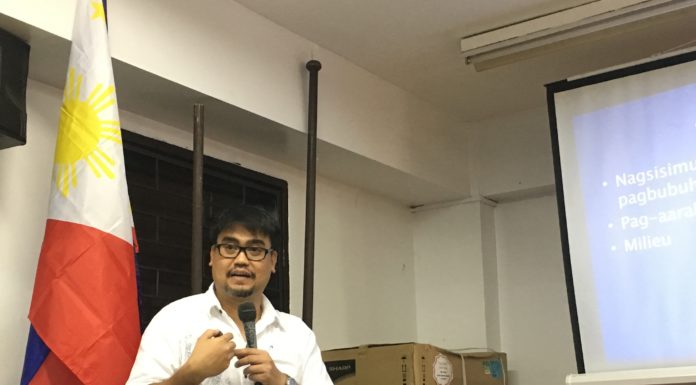THE OFFICE for Admissions has “temporarily” stopped requiring high school grades from most Thomasian hopefuls, saying that they are “not fair bases” for accepting college applicants.
“A student’s grade of 85 can be considered high in other schools, while it can only be an average or a poor rating in other schools with higher standards,” said admissions director Mecheline Zonia Manalastas.
As stated in the student handbook, UST entrance examination (Ustet) takers are graded based on the score in the test (80 percent) and high school averages in Mathematics, Science and English (20 percent) from first year to third year.
The new policy means an applicant’s chances of entering UST depends entirely on the Ustet, except in the colleges of Nursing, Education, Tourism and Hospitality Management, the Conservatory of Music, and the Faculty of Pharmacy where high school grades together with additional requirements such as an interview, are still required.
Manalastas said the new policy addresses “immediate concerns” of parents who find it difficult to secure their child’s high school grades.
She said it would make Thomasian education accessible to more applicants.
“Giving more students a chance to take the Ustet is a sign that you want education to be availed of by as many [students as possible],” Manalastas said.
Data from the registrar’s office showed that more and more students are entering UST since the policy was introduced in 2008.
A total of 38,708 students enrolled for this semester, an increase of more than 100 students from school year 2008-2009 when there were only 38,523.
The figure last year was a 10-percent increase from the school year 2007-2008, when only 34,964 enrolled.
Manalastas said the University is after the “quality and not the quantity” of students.
The entrance fee for applicants belonging to the top five of their respective batches was waived starting last year, drawing around 5,000 “top performing” students to take Ustet, according to Manalastas.
Initially, only those that belong to the top three were exempted from paying the entrance fee.
“The University is not after the quantity of enrollees. The number of students is a good sign that you want education to be availed of by as many. It’s a right for everyone to have an access to a good and quality education,” Manalastas said.
The online applications, which started last year, was also one of the factors why the office stopped requiring high school grades for admission.
“You’ll never know if the child will key in his true grades or not,” she said. “It’s not actually an alteration, rather an improvement of our admission policies.”
Manalastas also clarified that the policy is “neither permanent nor fully implemented” since she would have to meet the college deans and secretary general Fr. Florentino Bolo, O.P. first to discuss the proposal. Adrienne Jesse A. Maleficio















